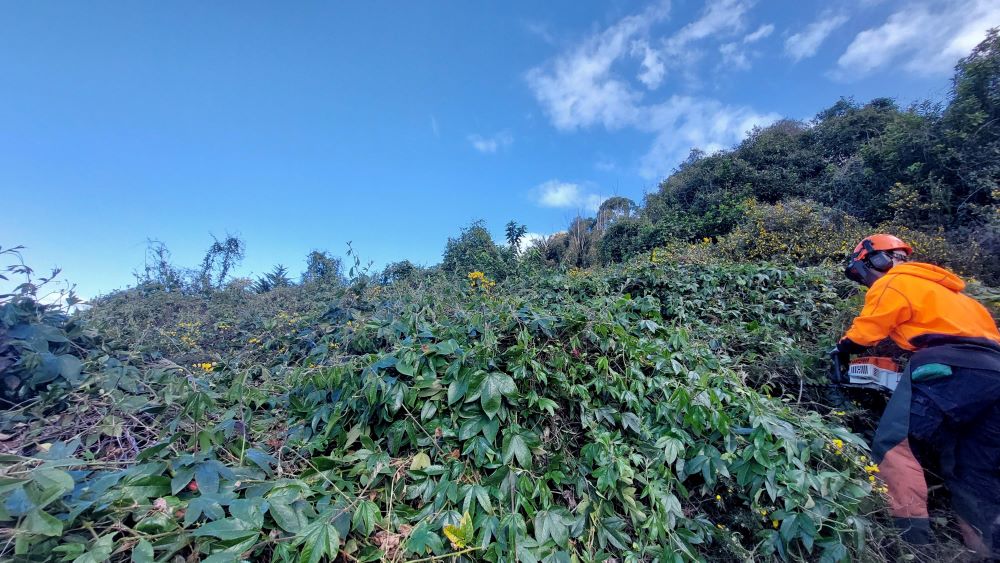Native ecological restoration
The biosecurity services team have been responsible for managing pest plants and revegetation in the “Red Zone” in Christchurch on New Zealand’s South Island for the past two years.
The team started with only two people and a 28-hectare section of Red Zone as a trial run with Christchurch City Council. In those two years the team has grown to five, and they now help maintain nearly all 700 hectares of the Red Zone.
There are more than 100 species that need to be controlled in the red zone, including gorse, Japanese honeysuckle, willows, old man’s beard vine and banana passionfruit. Identification of plants is key, with a number of hybrid species having evolved since the earthquake in 2011.
From hand pulling plants to controlling with low-toxicity herbicides, pest plants are managed in a way that is sensitive to the environment and the local community.
The team also has multiple other contracts for Christchurch City Council and Environment Canterbury with sites at Banks Peninsula, the Port Hills, Cass and near Lake Coleridge.








